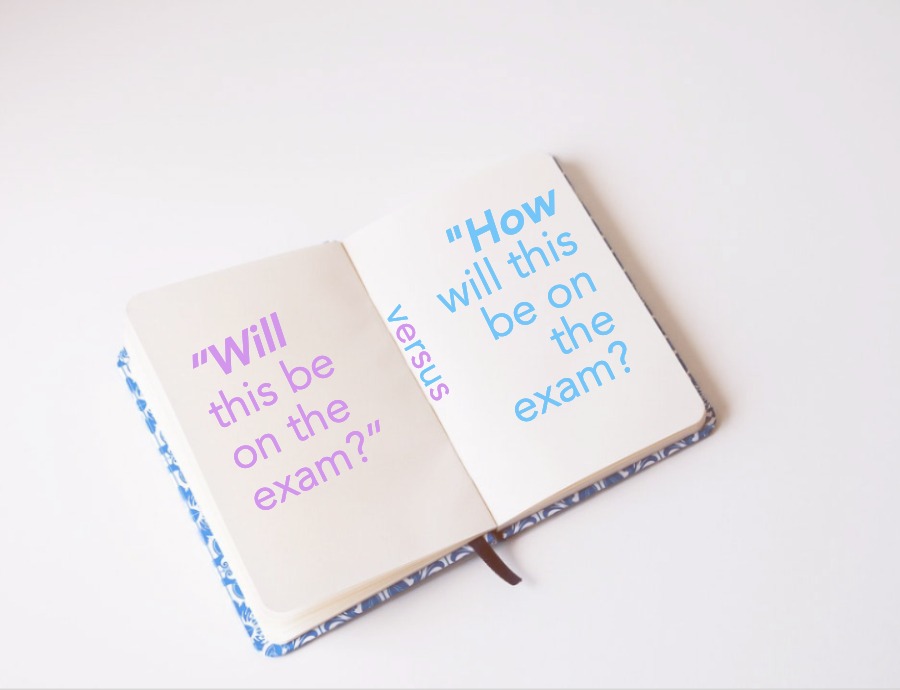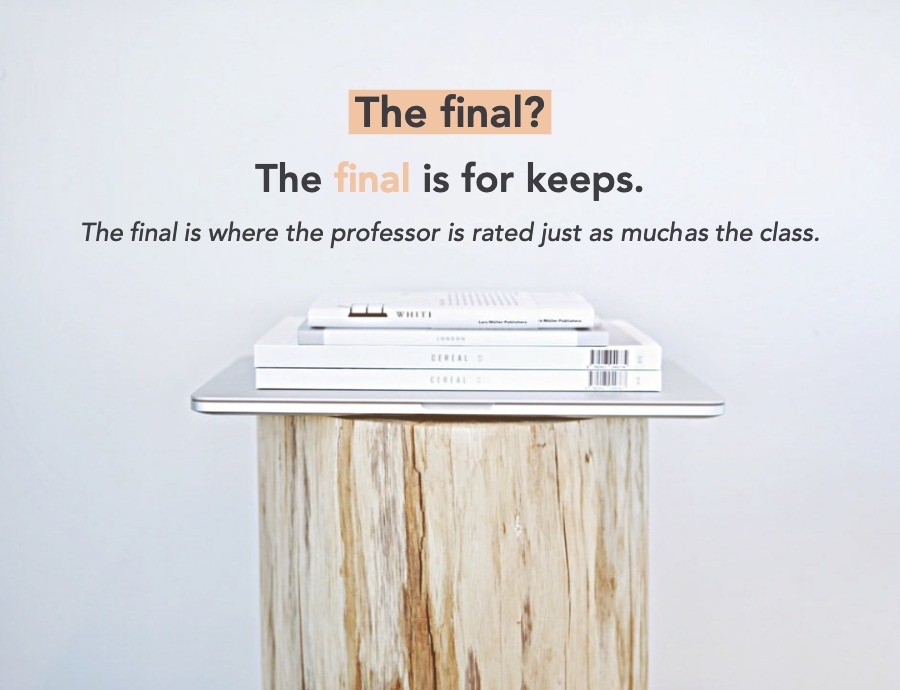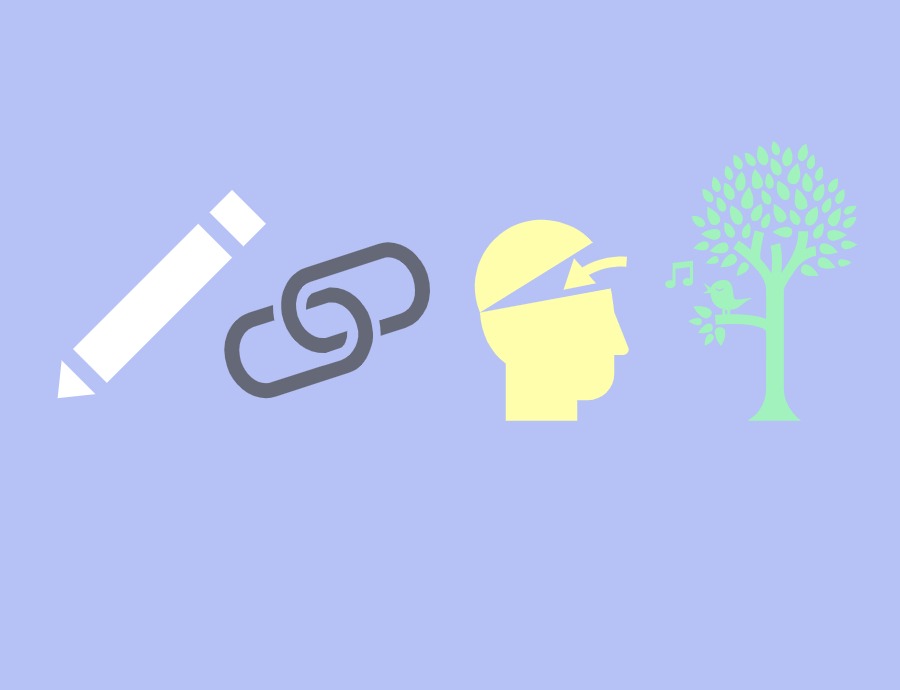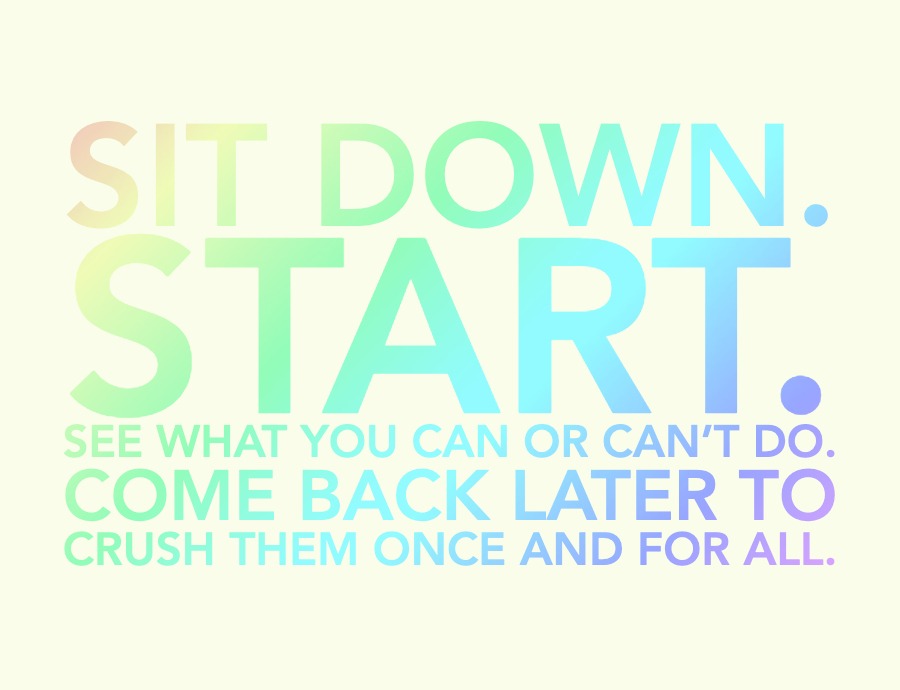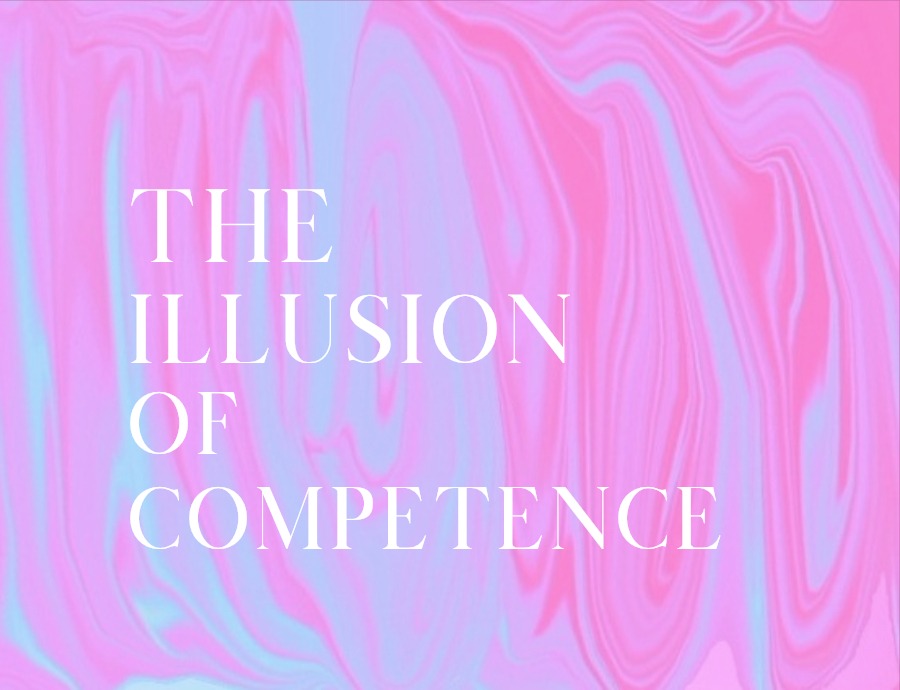Hark, listen carefully even now and you can hear the cry of a stressed student in the distance:
“Will this be on the exam?”
Ah, as sure as the falling of leaves or the singing of birds, this signifies the turn of the season. In this case exam season. Echoed in lecture theaters around the world, and often evaded by the wily Professor with vague answers about relevant chapters and checking the course syllabus. Because the Professor knows that saying “no” will instantly delete the entire lecture from their students’ memory. Of course they don’t want that!
What they do want is a good class average on the results. Which means they will often tell students what’s going to be on the exam, but in their own time, and closer to the end of term, so that they’re able to give lectures to attentive students instead of being interrupted every other minute by the same question over and over and over again.
So instead of asking “Will this be on the exam”, improve your time studying the notes with a much more interesting question: “HOW will this be on the exam?” Does this equation depend on a variable which could be changed in the question? Could they set this problem on the Moon to change the gravity? Is there an exception they could mention which means this theory isn’t applicable? What happens if the energy is doubled, or the mass is an unknown? Can we solve it then?
Now you’re improving yourself by expanding your thoughts instead of sabotaging yourself by searching for stuff you can cut out of your own understanding. The whole point of coming to college, of entering university, is to make yourself better at things. The exam is an important step in completing that procedure but it’s nowhere near the whole goal. Use each lecture to improve your abilities and imagination. And if you end up knowing even more than you needed to pass the course, able to solve problems more difficult than those on the exam? That makes the exam easier!
Examining past exams and solutions is a great way to start this process. Look at past problems then ask: what else could they have asked from that setup? Could they have tilted it, or added friction, or turned it into a conservation of energy problem? Every exam by its basic nature will re-use structures and concepts. Some courses straight up re-use old questions by changing up a few factors. If you’re looking at your course’s problems and working out how to make them new and interesting, you’re not just thinking like a top student: you’re thinking like the examiner. Which will make you even better at the exam!
“Will this be on the exam?”
Ah, as sure as the falling of leaves or the singing of birds, this signifies the turn of the season. In this case exam season. Echoed in lecture theaters around the world, and often evaded by the wily Professor with vague answers about relevant chapters and checking the course syllabus. Because the Professor knows that saying “no” will instantly delete the entire lecture from their students’ memory. Of course they don’t want that!
What they do want is a good class average on the results. Which means they will often tell students what’s going to be on the exam, but in their own time, and closer to the end of term, so that they’re able to give lectures to attentive students instead of being interrupted every other minute by the same question over and over and over again.
So instead of asking “Will this be on the exam”, improve your time studying the notes with a much more interesting question: “HOW will this be on the exam?” Does this equation depend on a variable which could be changed in the question? Could they set this problem on the Moon to change the gravity? Is there an exception they could mention which means this theory isn’t applicable? What happens if the energy is doubled, or the mass is an unknown? Can we solve it then?
Don’t sabotage yourself by searching for things to forget
Now you’re improving yourself by expanding your thoughts instead of sabotaging yourself by searching for stuff you can cut out of your own understanding. The whole point of coming to college, of entering university, is to make yourself better at things. The exam is an important step in completing that procedure but it’s nowhere near the whole goal. Use each lecture to improve your abilities and imagination. And if you end up knowing even more than you needed to pass the course, able to solve problems more difficult than those on the exam? That makes the exam easier!
Examining past exams and solutions is a great way to start this process. Look at past problems then ask: what else could they have asked from that setup? Could they have tilted it, or added friction, or turned it into a conservation of energy problem? Every exam by its basic nature will re-use structures and concepts. Some courses straight up re-use old questions by changing up a few factors. If you’re looking at your course’s problems and working out how to make them new and interesting, you’re not just thinking like a top student: you’re thinking like the examiner. Which will make you even better at the exam!

